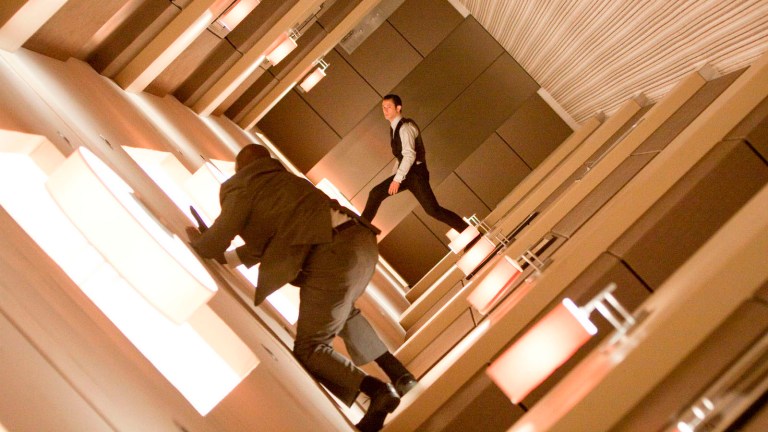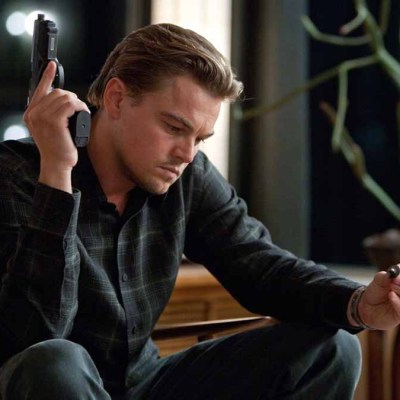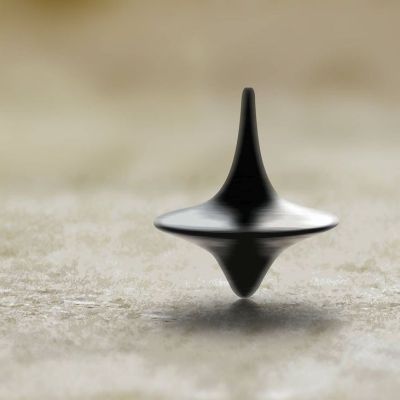Inception: The Movies and Comics Fans Think It Ripped Off
Christopher Nolan's Inception is often accused of stealing its shared dream idea from earlier works, but these theories fall apart upon closer examination.

They say there’s nothing new under the sun and that Hollywood is bereft of fresh ideas. But sometimes truly innovative films are unfairly accused of being derivative just because they put a new twist on an age old concept. Such is the case with Christopher Nolan’s 2010 film Inception, which is receiving fresh scrutiny now that it’s streaming on Netflix for longtime fans as well as those who missed it in theaters the first time around.
Sometimes the chronology of inspiration doesn’t quite line up as neatly as skeptics would like to think. Even though Inception was released in 2010, Nolan had presented a treatment to Warner Bros. about “dream stealers” in 2002 before shelving it to work on other projects. With that in mind, could the following properties have inspired the Academy Award winning film as some have theorized, and if not, how else could the similarities be explained?
Paprika (2006)
Satoshi Kon’s surreal science fiction anime, Paprika, is often brought up as a possible inspiration for Inception. Even allowing for Nolan’s aforementioned development period, the animated film is actually based on a 1993 novel of the same name, so the fact that an earlier story used a type of technology to induce a shared dream state raises some eyebrows. But how much do these two films really have in common?
Two scenes in Paprika draw particular attention from those who think Nolan stole the idea. One is the use of a hotel corridor that appears to defy the laws of physics. In Inception, the fight scene which follows Joseph Gordon-Levitt’s Arthur as he tries to keep his team alive while the falling van in the dream level above him wreaks havoc with gravity is a hallmark of the movie. Detective Konokawa’s recurring dream is also central to the anime, but the warping floor doesn’t really create the same effect. And honestly, hallways are regular fodder for dream sequences.
The other commonality is more subtle, but it involves breaking open a new area of the dream. Elliot Page experiments with the dreamscape in Inception by swinging a giant mirror between a pair of columns and then shattering it, while the titular character in Paprika widens a cracked opening between two different dreams. Perhaps it’s because both characters wear red and tentatively reach out a hand to the opening that people draw a parallel between the films, but the similarities end there. The chaotic nature of Kon’s dream narrative otherwise bears little resemblance to Nolan’s ordered dream architecture.
The Dream of a Lifetime (2002)
It seems silly to even consider a Donald Duck comic as inspiration for a mind-bender like Inception, but it’s hard to deny the coincidental parallels that appear in Uncle Scrooge #329, published in 2004 in America two years after its Danish release, which was also the same year Nolan presented his treatment. “The Dream of a Lifetime” in this comic also uses a machine to invade Scrooge McDuck’s dream for the purposes of stealing his money.
The similarities are more prevalent in this story, which follows the villainous Beagle Boys as they use a stolen psychiatric tool (which was also how Paprika presented its technology) to extract the safe combination from Scrooge in his dream and steal his fortunes. Inception undeniably also uses a safe combination to entrap its subject, Cillian Murphy’s Fischer, who is heir to his father’s company, and the coincidences don’t end there.
“The Dream of a Lifetime” also presents its set of rules for the dream, just as Inception does. Whereas Nolan’s film talks about deep dreamers getting trapped in Limbo, the comic presents the danger of Scrooge waking up first, which would trap the Beagle Boys inside his mind forever, driving the old miser mad. However, dream subjects in Inception protect themselves with subconscious projections, whereas Scrooge is vulnerable to simply confessing the combination in his open dream state. The presence of rules is similar, but the rules themselves are not. Nolan did not rob Scrooge.
Dreamscape (1984)
Putting aside Freddie Krueger and the “dream warriors” of A Nightmare on Elm Street, the ’80s were filled with movies exploring other planes of existence, and Dreamscape shares a few similarities with Inception and the other properties on this list. The film again presents its dream-sharing technology as a medical tool that is then exploited, but it requires the use of psychic ability as well to enter the minds of others.
At this point, it should be clear that using technology to enter a dream is not a new idea, but Inception certainly can’t be accused of doing anything more than putting a twist on an exploitable core concept. Dreamscape presented a rule that dying while asleep would cause you to die in real life, which Nolan’s film circumvented through its use of Limbo, and other than that, the similarities fade quickly upon closer examination.
Last Year in Marienbad (1961)
Nolan has wisely ignored all accusations that he stole his idea for Inception from earlier works, but he did admit to watching Last Year in Marienbad, a movie with a dreamlike narrative that skips around in time in a very fluid manner. Aside from using another hotel corridor, the film’s story bears no resemblance to Inception, and even though Nolan watched the movie the year his film was released, he knew people would still question his influences.
“Everyone was accusing me of ripping it off, but I actually never got around to seeing it,” he told a New York Times reporter. “Funnily enough, I saw it and I’m like, ‘Oh, wow. There are bits of Inception that people are going to think I ripped straight out of Last Year at Marienbad.”
Fortunately, Nolan realizes it’s all part of a natural process of film analysis some moviegoers thrive on. “Basically, what it means is I’m ripping off the movies that ripped off Last Year at Marienbad, without having seen the original. It’s that much a source of ideas, really, about the relationships between dream and memory and so forth, which is very much what Inception deals with.”
Nolan got the last laugh in the end, though, adding, “But we have way more explosions.”


